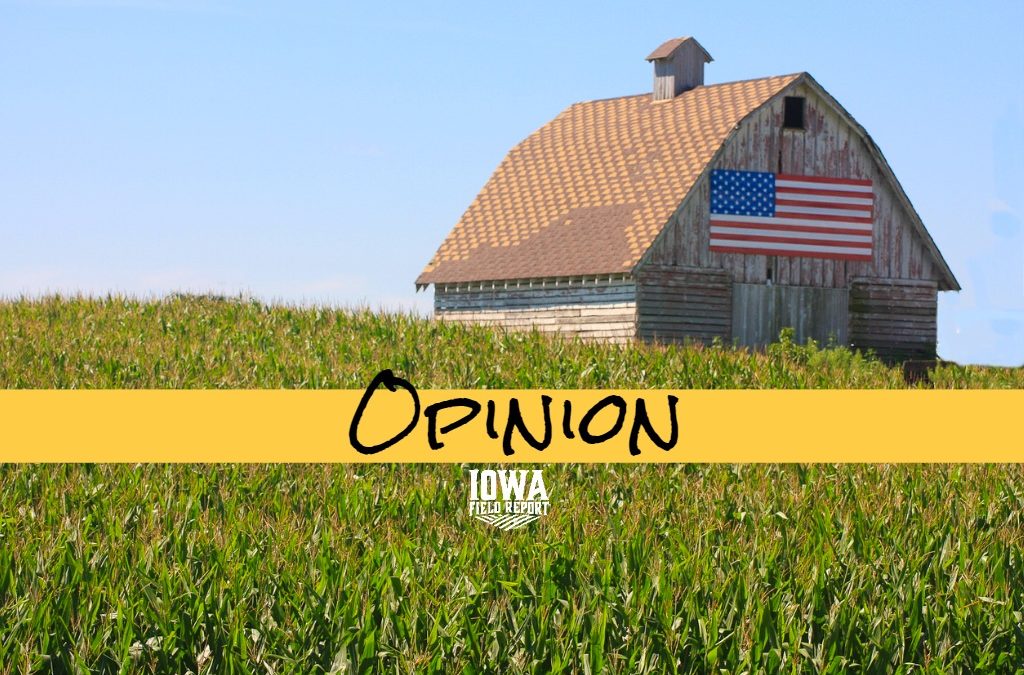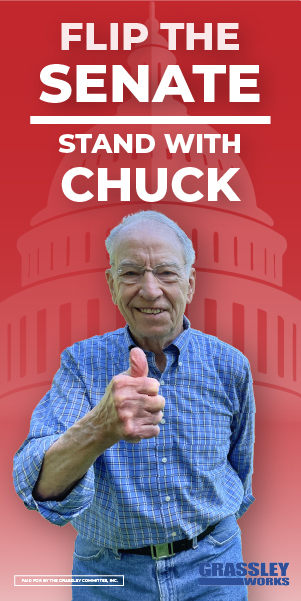If you don’t know by now, Iowa caucus-goers are built different.
Voters across the country groan when the first political ad airs, when candidates come to town,
when the first political call of the season hits the phones…but not Iowa caucus-goers. For them,
the mail, phones, texts, and visits have already started. Candidates are taking over the airways
and the Iowa State Fair, but Iowans wouldn’t have it any other way.
There’s something about sitting in a quaint coffee shop or pizza eatery and asking someone
who wants to be president a question, face to face. Iowans take this seriously – they want to
meet candidates, they want to know where they stand on policy issues, they push and
question, and they winnow. Someone who wants to be president should have to do that – they
should have to talk to everyday Americans about where they stand on issues. They shouldn’t be
allowed to simply spend money on flashy tv ads or talk to reporters. Talking to real people who
are facing real issues is important.
These days, much ado is made about polling – national polls show this or that. Even state-
specific polling can be tricky because caucus-goers are notoriously hard to poll. It’s such a small,
distinct set of people and they ebb and flow in and out of support as the months drag on. Who
you read about in the lead today may not be the same in a couple of months. The more
research, the more listening, the more things can soften and change.
So, if you want to be President, how do you best reach the elusive caucus-goer, how do you
break through?
Show up and talk to Iowans, really talk to them and listen. Candidates should use this
opportunity to focus their messaging, and let the questions help them to be a better candidate.
Big events, touring businesses and plants, small coffees or meet-and-greets – it’s all good.
There have been plenty of candidates who rose to become somebody just by spending many
days in Iowa, traveling the state and listening. At this point, Iowans have come to expect it.
Statewide candidates here – Gov. Reynolds, Senators Grassley and Ernst, tour all 99 counties
each year, even when they’re not on the ballot. It keeps them in touch with what issues are
resonating with Iowans, and it allows them to see how real-world policies are having an effect
on people.
Candidates should also plan their caucus night months in advance. Convincing caucus-goers to
come out of their warm houses on a cold January night means the strategy must start now. First
is to find out who’s with you, then you work on getting them to the caucus, and don’t forget
figuring out a way for them to connect to others on your behalf.
Sometimes candidates can’t be everywhere but they still need to find a way to connect with a
large group of caucus-goers and make it feel personal – phones are a great place to start. Since
the pandemic, phones have been having a moment in the political world. Live calls, automated
calls, telephone townhalls and text messages help a campaign focus on advocating and
connecting with Iowans. Live calls, telephone townhalls, and text messages allow candidates to
have a two-way conversation with caucus-goers and find out what’s really on their minds.
Professional phone calls will also help identify which caucus-goers are with them, which may be
soft, and which need more connection.
The Iowa Caucus is like nothing else and so are caucus-goers. This will not be a walk in the park
for any candidate, and that’s why it’s worth it.
Nicole Schlinger has two decades of experience in grassroots voter contact, issue mobilization, and strategic campaign consulting. She launched CampiagnHQ in 1999. Campaigns & Elections magazine has twice named her a top political influencer.



